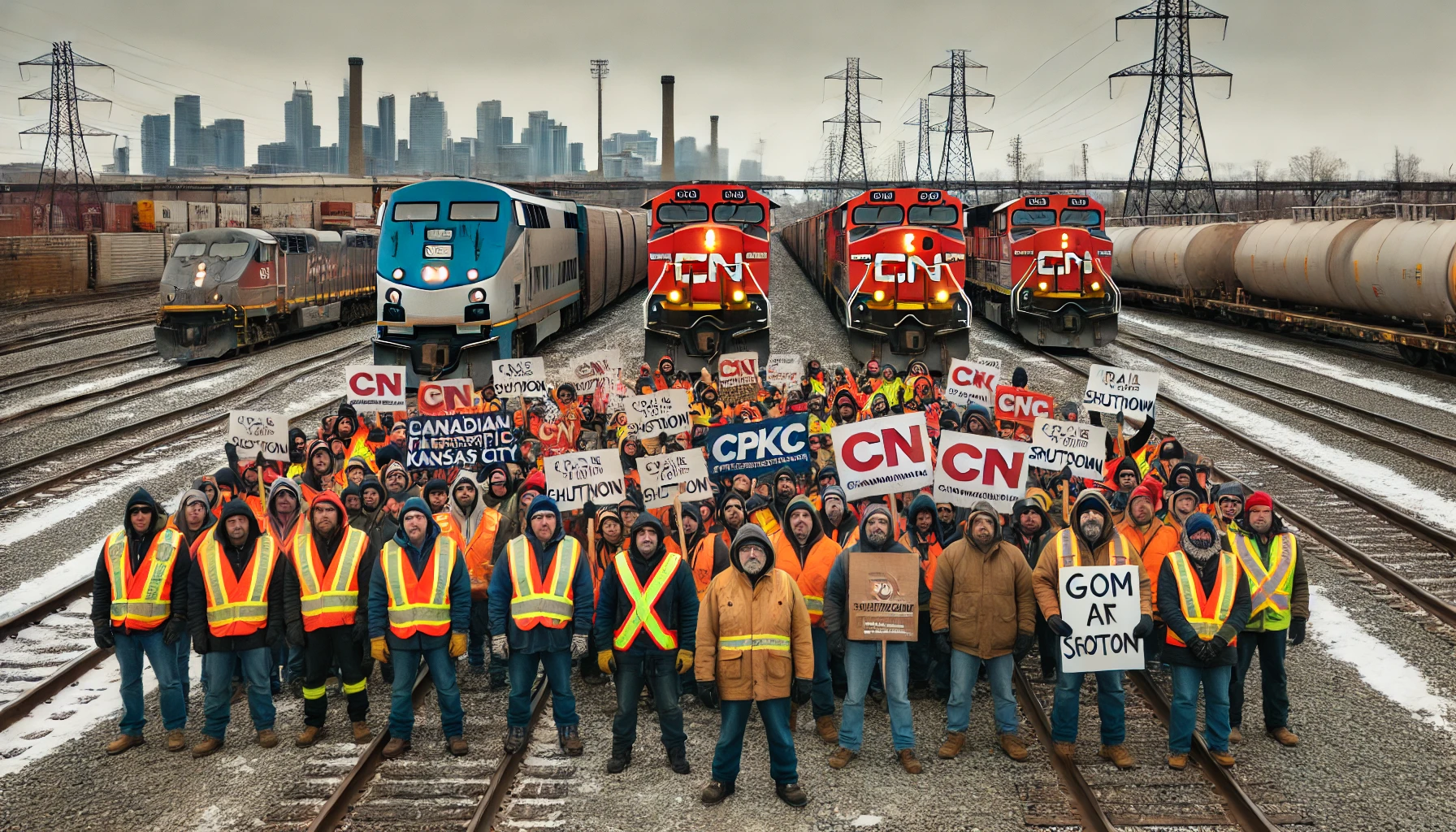
22 Aug Canada Moves Quickly to End Rail Shutdown; CN, CPKC Prepare to Resume Services
The Canadian government took swift action on Thursday to end an unprecedented rail stoppage that had brought much of the nation’s critical transportation infrastructure to a halt. The government announced that it would request the Canadian Industrial Relations Board (CIRB) to issue a back-to-work order, which is expected to come into effect within days.
Earlier in the day, Canada’s two largest rail companies, Canadian National Railway (CN) and Canadian Pacific Kansas City (CPKC), locked out over 9,000 unionized workers. The lockout followed unsuccessful negotiations with the Teamsters union, leading to a simultaneous rail shutdown that business groups warned could inflict hundreds of millions of dollars in economic damage.
Labour Minister Steven MacKinnon, addressing the urgency of the situation, stated, “I assume that the trains will be running within days.” This move marks a significant shift from the Liberal government’s earlier stance, which had favored resolving the issue at the bargaining table.
The CIRB, an independent body, will now consult with the involved parties before issuing its order. CN announced plans to end its lockout by 6 p.m. ET, while CPKC prepared to restart operations in Canada, pending further directives from the CIRB.
In a further effort to resolve the dispute, MacKinnon has requested the board initiate binding arbitration between the Teamsters union and the companies. He also asked for the extension of current labor agreements until new ones are signed.
The rail shutdown has already caused significant disruptions across the country, halting shipments of key commodities such as grain, potash, and coal, while also slowing the transport of petroleum products, chemicals, and automobiles. Additionally, tens of thousands of commuters in Toronto, Vancouver, and Montreal have been affected, as certain commuter rail lines that rely on CPKC-owned tracks have come to a standstill.
Business groups and companies, which had been urging the government to take immediate action, expressed relief at the intervention. The Canadian Manufacturers & Exporters, an industry group, highlighted the potential economic fallout of a prolonged stoppage, stating, “We are pleased the government has responded to our calls to intervene. A prolonged stoppage would have imposed enormous costs on Canadian business.”
The root of the stoppage, according to both the union and the companies, lies in disputes over scheduling, labor availability, and demands for a better work-life balance. These tensions have been simmering since the introduction of new duty and rest-period rules by Ottawa in 2023.
Despite the government’s decisive action, the union’s response to the back-to-work directive remains to be seen. Unions typically resist arbitration, as it removes their leverage in securing better terms through labor actions. The New Democratic Party, which traditionally supports union interests, criticized the government’s move, with party leader Jagmeet Singh stating, “Justin Trudeau has just sent a message to CN, CPKC, and all big corporations – being a bad boss pays off.”
As the rail companies prepare to resume services, the economic and social impacts of the shutdown are likely to be felt for some time. CN has indicated it could take a week or more to clear the backlog of shipments.
The rapid resolution of this crisis underscores the critical role of railways in Canada’s economy, especially given the country’s vast geography and its integration with the U.S. supply chain. With the CIRB’s order pending, the coming days will be crucial in determining the long-term implications of this labor dispute.

